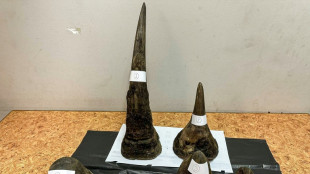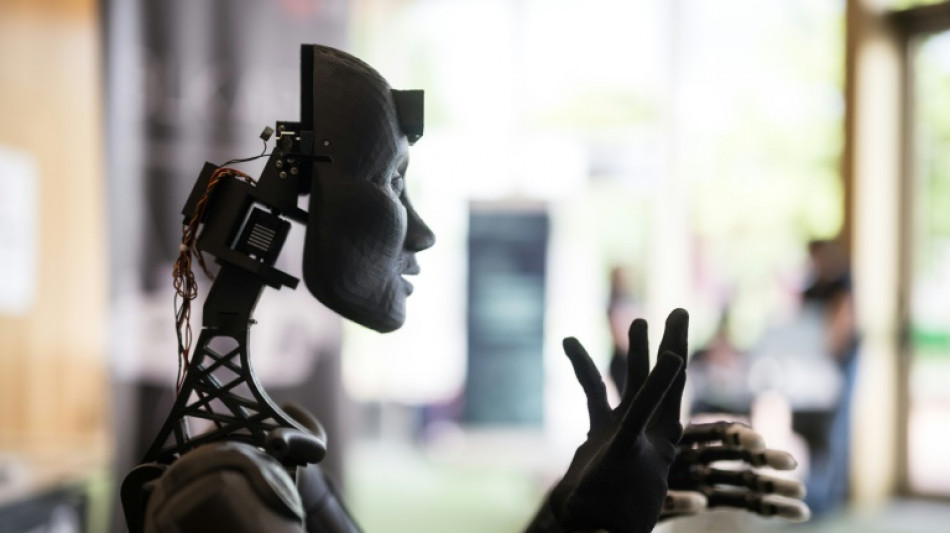
-
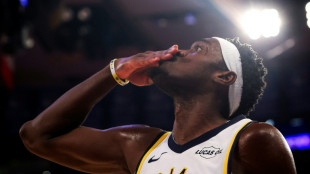 Pacers outlast Knicks in overtime
Pacers outlast Knicks in overtime
-
9 killed in Canada mass shooting that targeted school, residence: police
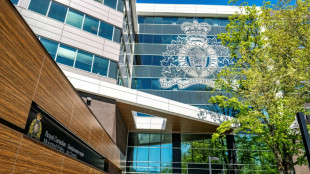
-
 De Zerbi leaves Marseille 'by mutual agreement'
De Zerbi leaves Marseille 'by mutual agreement'
-
Netanyahu to push Trump on Iran missiles in White House talks

-
 England captain Stokes has surgery after being hit in face by ball
England captain Stokes has surgery after being hit in face by ball
-
Rennie, Joseph lead running to become next All Blacks coach

-
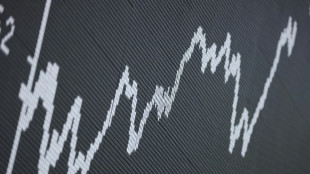 Asian stock markets mixed as traders weigh US data, await jobs
Asian stock markets mixed as traders weigh US data, await jobs
-
Australian Olympic snowboarder airlifted to hospital with broken neck
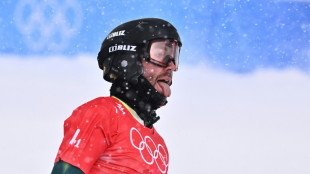
-
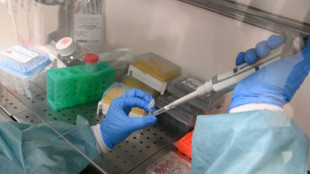 Moderna says US refusing to review mRNA-based flu shot
Moderna says US refusing to review mRNA-based flu shot
-
'Artists of steel': Japanese swords forge new fanbase
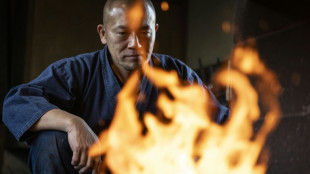
-
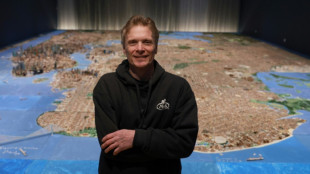 New York model, carved in a basement, goes on display
New York model, carved in a basement, goes on display
-
Noisy humans harm birds and affect breeding success: study
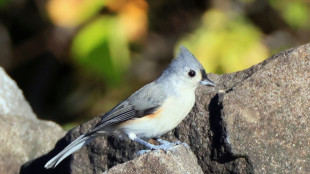
-
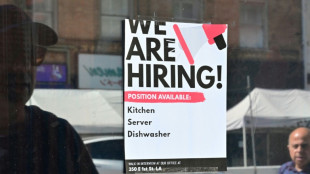 More American women holding multiple jobs as high costs sting
More American women holding multiple jobs as high costs sting
-
Charcoal or solar panels? A tale of two Cubas
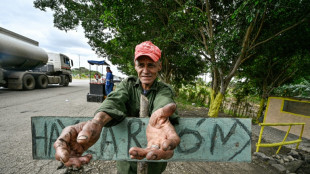
-
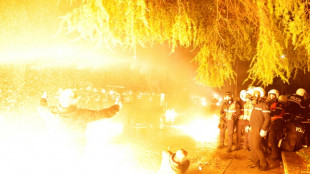 Several wounded in clashes at Albania opposition rally
Several wounded in clashes at Albania opposition rally
-
Chelsea's draw with Leeds 'bitter pill' for Rosenior

-
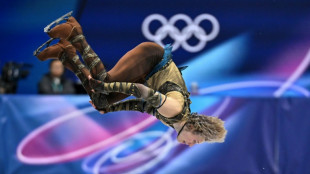 'On autopilot': US skate star Malinin nears more Olympic gold
'On autopilot': US skate star Malinin nears more Olympic gold
-
Carrick frustrated by Man Utd's lack of sharpness in West Ham draw

-
 Frank confident of keeping Spurs job despite Newcastle defeat
Frank confident of keeping Spurs job despite Newcastle defeat
-
James's All-NBA streak ends as Lakers rule superstar out of Spurs clash
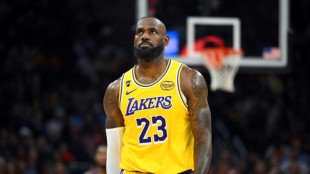
-
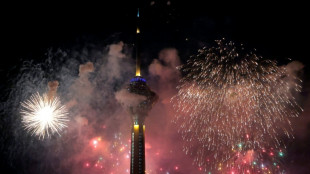 Anti-Khamenei slogans in Tehran on eve of revolution anniversary: social media footage
Anti-Khamenei slogans in Tehran on eve of revolution anniversary: social media footage
-
Colombian senator kidnapped, president targeted in election run-up
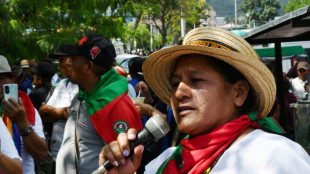
-
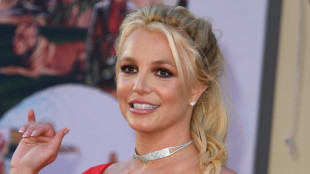 Britney Spears sells rights to her music catalog: US media
Britney Spears sells rights to her music catalog: US media
-
West Ham end Man Utd's winning run, Spurs sink to 16th

-
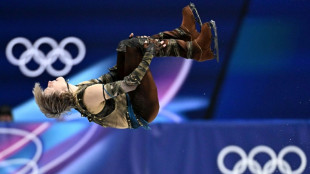 US skate star Malinin leads after short programme in Olympics
US skate star Malinin leads after short programme in Olympics
-
Man Utd's Sesko strikes late to rescue West Ham draw

-
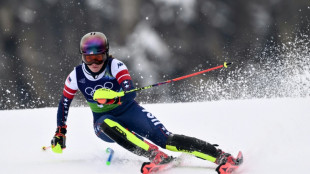 Shiffrin flops at Winter Olympics as helmet row grows
Shiffrin flops at Winter Olympics as helmet row grows
-
Celtics' Tatum practices with G League team but injury return uncertain

-
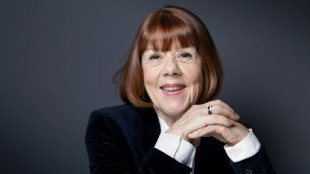 Gisele Pelicot publishes memoirs after rape trial ordeal
Gisele Pelicot publishes memoirs after rape trial ordeal
-
Newcastle beat sorry Spurs to leave Frank on the brink
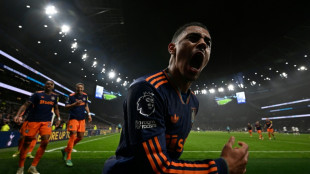
-
 'Outrage' as LGBTQ Pride flag removed from Stonewall monument
'Outrage' as LGBTQ Pride flag removed from Stonewall monument
-
Chappell Roan leaves agency headed by embattled 2028 Olympic chief

-
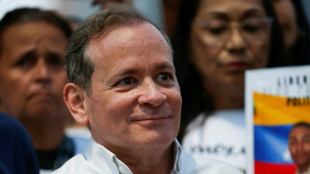 Venezuelan authorities move Machado ally to house arrest
Venezuelan authorities move Machado ally to house arrest
-
YouTube rejects addiction claims in landmark social media trial
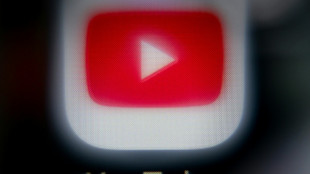
-
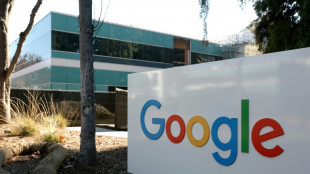 Google turns to century-long debt to build AI
Google turns to century-long debt to build AI
-
'I felt guided by them': US skater Naumov remembers parents at Olympics
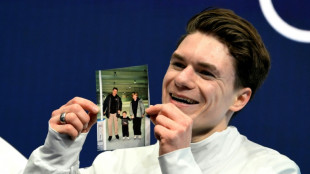
-
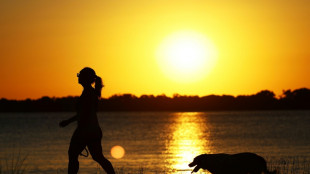 Till death do us bark: Brazilian state lets pets be buried with owners
Till death do us bark: Brazilian state lets pets be buried with owners
-
'Confident' Pakistan ready for India blockbuster after USA win

-
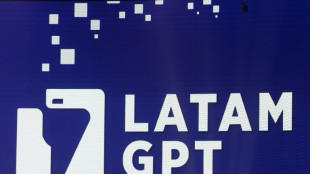 Latam-GPT: a Latin American AI to combat US-centric bias
Latam-GPT: a Latin American AI to combat US-centric bias
-
Gauff dumped out of Qatar Open, Swiatek, Rybakina through
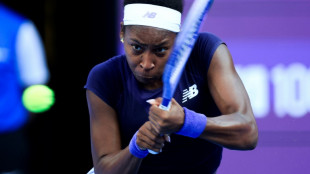
-
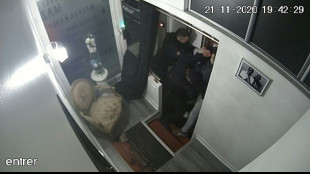 Paris officers accused of beating black producer to stand trial in November
Paris officers accused of beating black producer to stand trial in November
-
Istanbul bars rock bands accused of 'satanism'

-
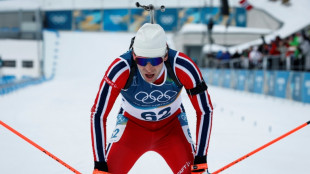 Olympic bronze medal biathlete confesses affair on live TV
Olympic bronze medal biathlete confesses affair on live TV
-
US commerce chief admits Epstein Island lunch but denies closer ties
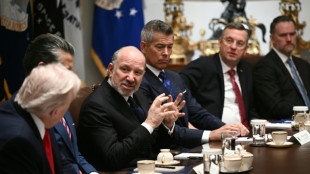
-
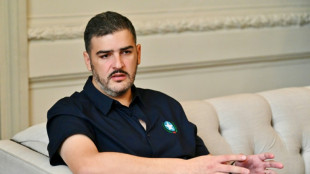 Mayor of Ecuador's biggest city arrested for money laundering
Mayor of Ecuador's biggest city arrested for money laundering
-
Farhan, spinners lead Pakistan to easy USA win in T20 World Cup

-
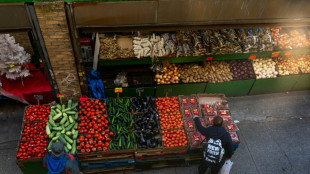 Stocks mixed as muted US retail sales spur caution
Stocks mixed as muted US retail sales spur caution
-
Macron wants more EU joint borrowing: Could it happen?
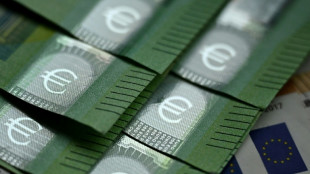
-
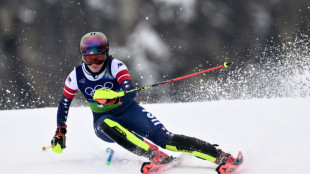 Shiffrin flops at Winter Olympics as helmet row simmers
Shiffrin flops at Winter Olympics as helmet row simmers
-
No excuses for Shiffrin after Olympic team combined flop
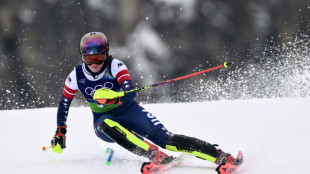

Will AI one day win a Nobel Prize?
Artificial intelligence is already disrupting industries from banking and finance to film and journalism, and scientists are investigating how AI might revolutionise their field -- or even win a Nobel Prize.
In 2021, Japanese scientist Hiroaki Kitano proposed what he dubbed the "Nobel Turing Challenge", inviting researchers to create an "AI scientist" capable of autonomously carrying out research worthy of a Nobel Prize by 2050.
Some scientists are already hard at work seeking to create an AI colleague worthy of a Nobel, with this year's laureates to be announced between October 7 and 14.
And in fact, there are around 100 "robot scientists" already, according to Ross King, a professor of machine intelligence at Chalmers University in Sweden.
In 2009, King published a paper in which he and a group of colleagues presented "Robot Scientist Adam" -- the first machine to make scientific discoveries independently.
"We built a robot which discovered new science on its own, generated novel scientific ideas and tested them and confirmed that they were correct," King told AFP.
The robot was set up to form hypotheses autonomously, and then design experiments to test these out.
It would even program laboratory robots to carry out those experiments, before learning from the process and repeating.
- 'Not trivial' -
"Adam" was tasked with exploring the inner workings of yeast and discovered "functions of genes" that were previously unknown in the organism.
In the paper, the robot scientist's creators noted that while the discoveries were "modest" they were "not trivial" either.
Later, a second robot scientist -- named "Eve" -- was set up to study drug candidates for malaria and other tropical diseases.
According to King, robot scientists already have several advantages over your average human scientist.
"It costs less money to do the science, they work 24/7," he explained, adding that they are also more diligent at recording every detail of the process.
At the same time, King conceded that AI is far from being anywhere close to a Nobel-worthy scientist.
For that, they would need to be "much more intelligent" and able to "understand the bigger picture".
- 'Nowhere near' -
Inga Strumke, an associate professor at the Norwegian University of Science and Technology, said that for the time being the scientific profession is safe.
"The scientific tradition is nowhere near being taken over by machines anytime soon," she told AFP.
However, Strumke added that "doesn't mean that it's impossible", adding that it's "definitely" clear that AI is having and will have an impact on how science is conducted.
One example of how it is already in use is AlphaFold -- an AI model developed by Google DeepMind -- which is used to predict the three-dimensional structure of proteins based on their amino acid.
"We knew that there was some relation between the amino acids and the final three-dimensional shape of the proteins... and then we could use machine learning to find it," Strumke said.
She explained that the complexity of such calculations was too daunting for humans.
"We kind of have a machine that did something that no humans could do," she said.
At the same time, for Strumke, the case of AlphaFold also demonstrates one of the weaknesses of current AI models such as so-called neural networks.
They are very adept at crunching massive amounts of information and coming up with an answer, but not very good at explaining why that answer is correct.
So while the over 200 million protein structures predicted by AlphaFold are "extremely useful", they "don't teach us anything about microbiology", Strumke said.
- Aided by AI -
For her, science seeks to understand the universe and is not merely about "making the correct guess".
Still, the groundbreaking work done by AlphaFold has led to pundits putting the minds behind it as front-runners for a Nobel Prize.
Google DeepMind's director John Jumper and CEO and co-founder Demis Hassabis were already honoured with the prestigious Lasker Award in 2023.
Analytics group Clarivate, which keeps an eye on potential Nobel science laureates, places the pair among the top picks for the 2024 candidates for the Prize in Chemistry, announced on October 9.
David Pendlebury, head of the research group, admits that while a 2021 paper by Jumper and Hassabis has been cited thousands of times, it would be out of character for the Nobel jury to award work so quickly after publication -- as most discoveries that are honoured date back decades.
At the same time, he feels confident that it won't be too long before research aided by AI will win the most coveted of science prizes.
"I'm sure that within the next decade there will be Nobel Prizes that are somehow assisted by computation and computation these days is more and more AI," Pendlebury told AFP.
A.Rodriguezv--AMWN

